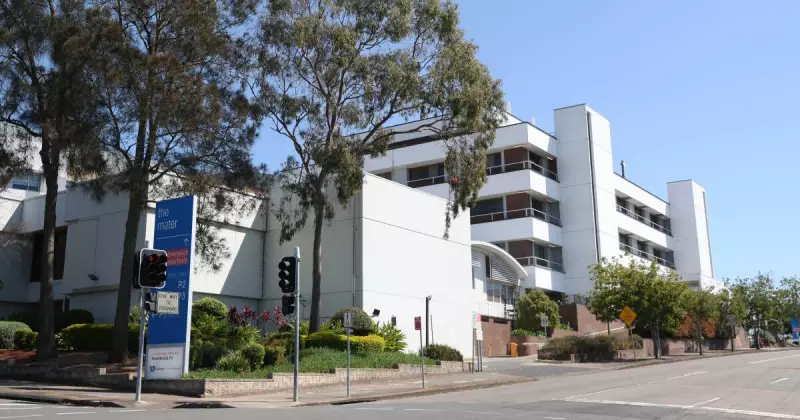
A major health scandal has emerged at a leading Australian cancer treatment facility, where management knowingly left vulnerable patients exposed to dangerous mould for more than six months.
Critical Report Ignored for Half a Year
The private company operating Calvary Mater Hospital in Newcastle received a critical report in October 2024 revealing deadly Aspergillus mould contamination throughout the air conditioning ducts serving cancer wards. Despite being warned the situation posed an immediate occupational health and safety risk to air quality in areas treating immunocompromised patients, the maintenance company Honeywell took no action for over six months.
Documents obtained by the Newcastle Herald show the issue was classified as "critical" and required complete replacement of the contaminated ductwork. Yet hospital staff, patients, and health authorities remained unaware of the danger until April 2025, leaving cancer patients undergoing treatment potentially exposed to life-threatening fungal infections.
Whistleblower Demands Investigation
Prominent whistleblower and current cancer patient Troy Stolz has labelled the hospital's inaction as "criminal and negligent" and is calling for immediate intervention from NSW Health Minister Ryan Park.
"It's extremely serious, they're playing with people's lives," said Cr Stolz, who has undergone multiple treatments at the Mater for his terminal stage 4 cancer. "Withholding information that relates to health, and the effects this mould could have on patients and staff, is criminal and negligent."
Cr Stolz, who gained statewide recognition for exposing money laundering in NSW clubs, became aware of the mould situation through concerned insiders who knew his history as a whistleblower.
Deadly Risk to Vulnerable Patients
While Aspergillus mould generally doesn't affect healthy individuals, it poses severe threats to people with compromised immune systems, particularly cancer patients undergoing treatment. Federal Department of Health reports indicate invasive Aspergillus infections carry mortality rates between 30 to 95 percent in immunocompromised patients.
Scientific literature confirms the mould can cause aspergillosis, with symptoms including coughing, shortness of breath, chest pain, fever, and chills. The pathogen has also been directly linked to mould pneumonia, a particular concern given recent Bureau of Health Information data showing the Calvary Mater had "higher than expected mortality" for pneumonia between mid-2021 and mid-2024.
"Patients and staff are in those wards for long periods of time," Cr Stolz explained. "It's like handling asbestos every day - the more exposure you have, the worse the outcomes can be."
Complex Ownership Complicates Accountability
The situation highlights challenges in the hospital's public-private partnership structure. The Mater operates under a PPP managed by NovaCare consortium, comprising Westpac Banking, Abigroup, Medirest, and maintenance provider Honeywell.
Both NovaCare and Honeywell have repeatedly refused to answer questions about the mould contamination, directing all inquiries to the state government. Meanwhile, NSW Health and Hunter New England Health maintain that infrastructure and maintenance fall under NovaCare's responsibility.
The issue gained official recognition in June when SafeWork NSW issued Hunter New England Health an improvement notice citing risks of "inhalation of mould spores from rain water ingress and humidity." While some leaks have reportedly been addressed, the mould contamination remains unresolved.
This isn't the first infrastructure problem identified at the hospital this year. In August, photos emerged showing severely corroded portable water tanks filled with mould and lacking vermin control, despite being two years overdue for replacement.
The prolonged delay in addressing critical health risks for some of NSW's most vulnerable patients has raised serious questions about accountability in the state's healthcare system and the effectiveness of public-private partnerships in delivering safe patient care.




